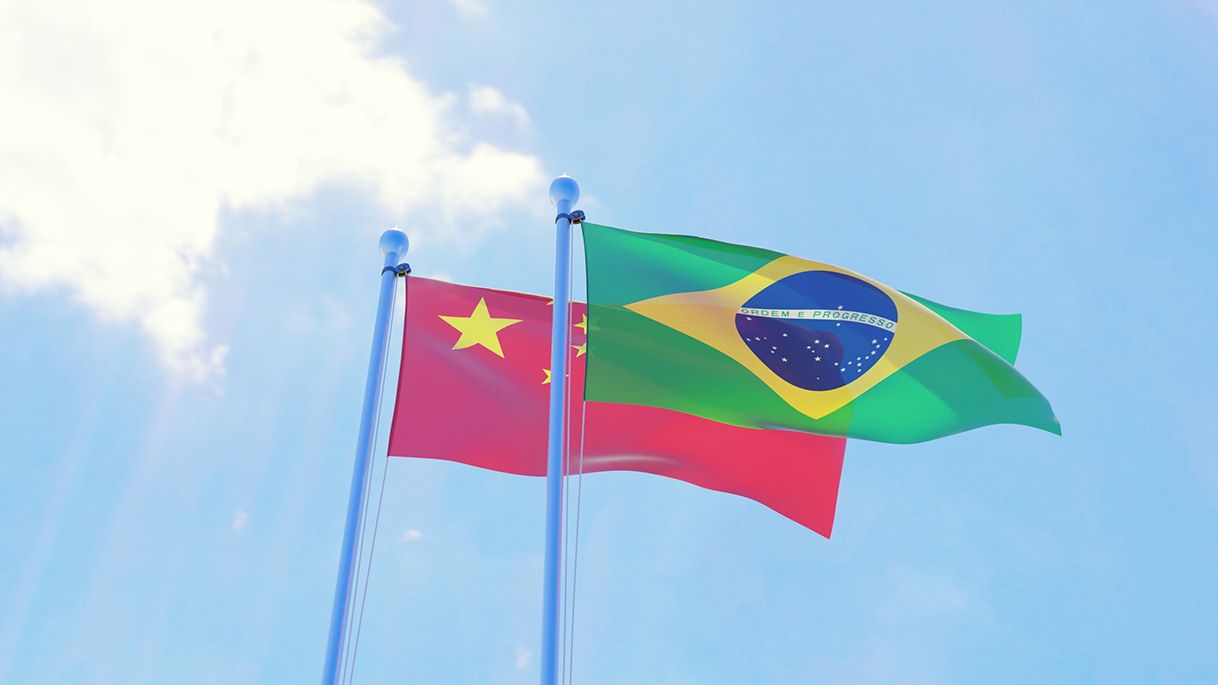Executive Brief

US-China Relations
Diplomatic TensionsSince the end of March, China has launched a “Spring Diplomacy” offensive designed to undermine the US-EU alliance against China, consolidate Global South support, and expand China’s influence in international affairs.
Courting EuropeChina recently hosted visits by Spanish Prime Minister Pedro Sanchez Perez-Castejona, President Emmanuel Macron of France, the EU Commission President Ursula von der Leyen, and Germany’s Foreign Minister Annalena Baerbock. After an official session in Beijing, President Xi flew to Guangzhou and held a four-hour “informal meeting” with Macron, after which the two issued a joint communiqué that covered the whole spectrum of bilateral relations and international issues. China also signed billions in commercial contracts, including a $20 billion contract to purchase 160 Airbus planes.
- After the visit, Macron questioned US policy, saying, “Is it in our interest to accelerate on the subject of Taiwan? The worst thing would be that we Europeans must become followers on this topic and adapt to the American rhythm and a Chinese overreaction.” He warned that if there is conflict between the US and China, Europe “would not have the time or the means to build our strategic autonomy.” His post-visit remarks were well received in China and widely criticized in the West.
- Macron’s comments were not welcome in France or Europe, and he offered reassurances that France stands “for the status quo in Taiwan" and "supports the One-China policy and the search for a peaceful resolution to the situation." A French National Assembly delegation began its Taiwan visit on 16 April with a contingent from the French Senate’s Taiwan Friendship Group to follow on 24 April.
The president of Brazil, prime ministers of Singapore, Malaysia, and Cote d’lvoire, as well as the ASEAN secretary general, all visited China.
- In addition to expressing political support to China on many international issues, Brazilian President Lula brought over 200 business executives to Beijing to sign multi-billion-dollar trade and investments deals. China has been Brazil’s largest trade partner for the last 14 years. Bilateral trade was $171.5 billion in 2022.
- Singapore Prime Minister Lee Hsien Loong supported China’s effort to join the Comprehensive and Progressive Agreement for Trans-Pacific Partnership.
- Malaysia Prime Minister Anwar Ibrahim proposed establishing a separate payment system to replace the US dollar in bilateral trade. Malaysia’s largest bank noted on 17 April that, despite some dilution, the US dollar will remain the dominant currency in international trade, however. The USD constitutes 60% of global external reserves versus less than 3% for the Chinese yuan.
Following the China-brokered Iran-Saudi Arabia rapprochement, foreign ministers of Saudi Arabia and Iran met in Beijing on 6 April and agreed to re-open embassies and consular offices. The two sides also agreed to start talks to end hostilities in Yemen. On 12 April, in Uzbekistan, China’s Foreign Minister attended the 4th Foreign Ministers’ Meeting among the Neighboring Countries of Afghanistan. China had hosted last year’s meeting that produced the Tunxi Initiative for Afghan reconstruction.
Mutual Distrust DeepensWANG Jisi, 75, has been a long-serving, senior adviser to the Chinese government on US-China relations. He previously served as Dean of the Institute of International Strategic Studies of the Central Party School and member of the Foreign Policy Advisory Committee of China’s Foreign Ministry.
In a Foreign Affairs article published on 6 April, Wang and co-author Scott Kennedy, senior adviser at the Center for Strategic and International Studies, conclude after conducting nearly a year of interviews that the US and China “believe the other is entirely to blame for deterioration” in relations. Chinese officials are convinced the US wants “to contain, surround, and suppress China...For its part, the US is convinced that Beijing wants to unravel the post-WWII international order.”
The authors believe relations will continue to deteriorate but aver that “talking and listening would increase opportunities of finding ways to peacefully manage differences.”
At a seminar in Singapore on 3 April, Wang attributed the deterioration of US-China relations to US domestic politics.
For decades, US policy was based on the notion that, with economic growth and China’s young generation, China would eventually transition to a country “not so much of communism, but of capitalism...more like the US.” Since China failed to meet this expectation, countering China is now a point of US bipartisan consensus, in Wang’s view.
- Wang commented that because China is “more concerned about its internal security” than its external security, Beijing sees the US as “interfering in China’s internal affairs” like Xinjiang, Tibet, Hong Kong, and Taiwan, and consequently China intends to counter US “interference”.
- Wang claimed that when former President Trump started confronting China, Beijing thought Washington would be satisfied if China made some economic concessions. The Chinese leadership perceived that the US was pursuing both economic gains and an ideological agenda to depose the Chinese Communist Party, as Wang explained.
- Wang confirmed Beijing has no expectation for improving China-US relations, stating “I talked with some Chinese policymakers and others. They told me, how can we improve our relations with that country that is trying so hard to contain China? .... I do not buy the notion that more talks will produce more results.” He expressed fears that “there could be a military showdown between China and US over Taiwan and the South China Sea.”